Hello 40k fans! Chris Morgan, Chief Librarian of the Forge the Narrative Podcast, is here again with the next weekly segment of Tomes of the Librarius. Also, check the Tactics Corner for more great articles!
Just as a reminder, in this series we will explore facets of the history and legends of the Grimdark. This is meant to be an easy summary and introduction geared towards new players or people unfamiliar with the setting, but should still be an interesting read or fun refresher for those already familiar. There’s so much detail in this lore that a bare summary seems so inadequate, but for new people this should be the right portion to get a feel for the history of the universe we enjoy our games in.
This week we will finalize our coverage on the Eisenhorn trilogy. Hereticus is the third installment in the series and brings us to 40 years after the dramatic conclusion of Malleus to an older, more curmudgeonly loyal Gregor Eisenhorn. Stuck in a backlog of administrative work, Eisenhorn finds himself thrust back into the action as he is confronted with terrible foes who challenge both his strength and his morality more than ever before. Tested beyond anything he considered possible, how far will our inquisitor go and who will he willing to sacrifice to achieve his goals?
Pushing the Limits of Loss
As we discussed in the last article, the more you like a character and the better off he/she seems in the beginning of a book, the more you can expect him/her to lose. With how desperate Eisenhorn was forced to get in the last book, it’s hard to imagine what he has to lose here to trump that experience. It’s safe to say that when it comes to what must be taken from Gregor, author Dan Abnett leaves nothing off the table. Indeed, it’s safe to say that in a universe full of dangers, the worst place to be would be near to or in any way associated with Gregor Eisenhorn.
A Core of Character Development
Abnett does a marvelous job of pushing the limits of what and who Eisenhorn is. How do you take a character with such establish surety of purpose and push him into new territory without losing the flavor of who the character was in the first place? It can be very easy to see a character change and evolve from one form to another and have not a shred of the base character remain, but Abnett does a great job of changing what Eisenhorn is willing to do without changing the core of who Eisenhorn is. Eisenhorn’s methods continue to lean more and more to the radical, and the transition is not subtle or slow.
Of course, the drama wouldn’t exist if Abnett didn’t make Eisenhorn himself agonize over his decisions before throwing him into a major conflict before he can clearly sort himself out. These are decisions that don’t just force Eisenhorn to consider who he is and whether he’s gone too far, but also challenges the reader and asks them how justified he is. All of this is wrapped around the solid core of willpower and loyalty that makes up the foundation of Eisenhorn as a character.
To Grow Your Loss Has to Be Real
Naturally, this development would mean nothing if it didn’t cost Eisenhorn something (or someone) important. If Malleus was the tip of the iceberg, then Hereticus is the real mass of it underneath when it comes to the scale of loss, and why I have spent the better part of 2,500 words between the last two novels bloviating on why loss matters so much in storytelling. This is a 40k book, so this isn’t some Disney ending where the bad guy can lose without dying and somehow everyone ends up alive and fine in the end. Also, this isn’t Game of Thrones where death is its own reason and its significance is lost in a fan lottery. For those reasons, what happens to Gregor and his conflicts matter so much more and cement his status as a paragon of 40k fiction (and fiction in general) for character development. By the end, despite his changes and the lines he has crossed, the reader doesn’t doubt that Gregor Eisenhorn is a loyal servant of the Emperor.
So, that’s why Hereticus is such a good novel, but by now you’re probably wondering why this is important to any and every 40k fan.
Scaling Up Your Heroes and Their Problems
By this book, the reader should have a pretty clear understanding of the workings of the Inquisition and human society on a number of planets. Xenos did a good job introducing the hierarchy and scope of authority in the Inquisition, painted a very broad picture of the worlds of the 40k universe beyond just the races and landscapes we were used to on the tabletop, as well as providing a foundation for conflict between the Inquisition’s sub-sects and factions. Malleus took that foundation and built a core of mistrust and politicking within the organization of the Inquisition, and started to pry open the nature of Chaos somewhat more. Malleus made it clear that humanity had little control or unity in how its many limbs prosecuted the race’s campaign for survival.
Both books provide an incredibly valuable framework of how humanity as the cornerstone a of conflict in the 40k universe makes the setting complete. As a human player, you see the bloat, the corruption, but also the heroic heart of the struggle to survive in a universe full of death and madness in the noble struggling of Gregor Eisenhorn. As a Chaos player, your sense of limitless power and creepy allure tickles your ego and gives you a power fantasy. As a Xenos player, you see how everything you do really wraps around how much you hate and look down on humanity, but also how much your fates are intertwined.
Hereticus takes what we learned about these things in Xenos and Malleus and turns the volume up to ten. The scope and the stakes in this book takes it up all the way to 125% and finally starts to push into how big the setting is and how far you can push the scale. Spoiler alert: there is no upper ceiling for how far you can push a threat, the stakes, or the solution in 40k. That knowledge is key to understanding the setting. If you read Hereticus and think “That’s too far,” or that you can’t suspend your disbelief, then you’re playing in the wrong playground. Abnett tows this line really well, and does it at the right pace and with the right amount of mystery, intrigue, destruction, sacrifice, and hope to sell the story to any reader no matter their ‘faction’ inclination. That’s why this book series matters and is in what I would call the essential library of 40k novels.
Good Stories Never Die
That wraps up our first peek into 40k novels for Tomes of the Librarius, and I hope you enjoyed the mostly spoiler-free commentary. Eisenhorn’s adventures did not end here, with another novel having been released just this year featuring the Inquisitions most famous poster boy, but we will save that one for a little while to give you some time to read it.
Next week we will start a short biography series on important characters in the 40k universe. Who would you like to see in the spotlight? Let me know in the comments!
Cheers,
Captain Morgan
And remember, Frontline Gaming sells gaming products at a discount, every day in their webcart!

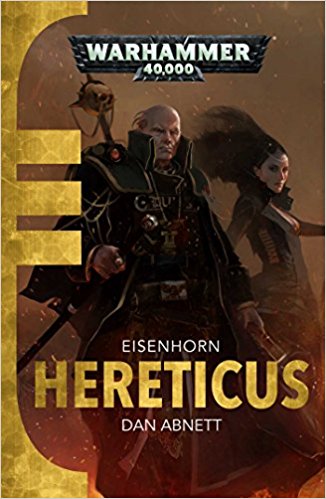
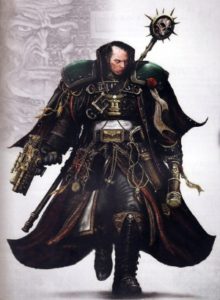
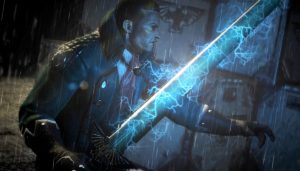
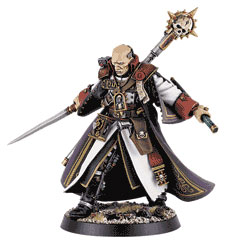
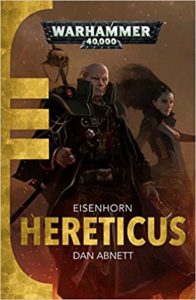

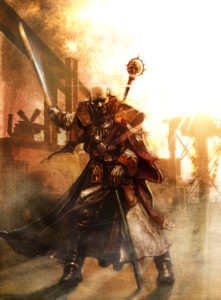
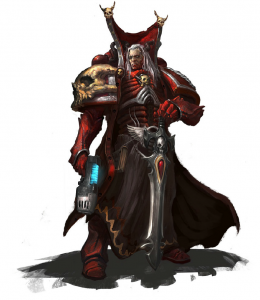
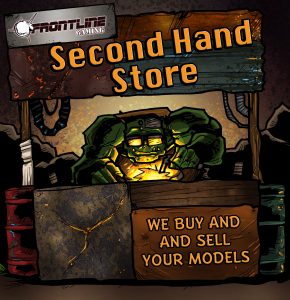
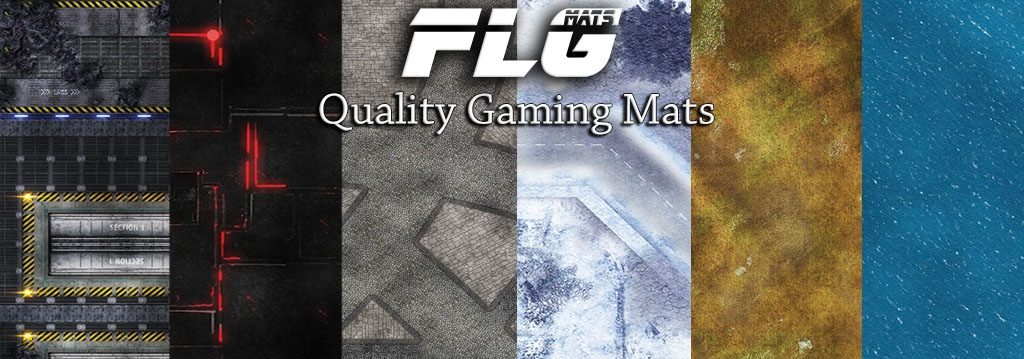
Hi Chris, thanks for the article. Where would you suggest a reader continue after completing the Eisenhorn series? I’ve actually just started Hereticus but like to plan ahead!
Hey, that’s a great question! There is another series that ties into it called ‘Ravenor’ which details the exploits of Gideon Ravenor, Eisenhorn’s former interrogator who was injured at the start of Malleus. That’s a great series to continue on with after Eisenhorn, but if you are looking for other interesting Inquisition stories then I would definitely recommend ‘Vaults of Terra: The Carrion Throne.’ It’s an inquisition-themed story based on Terra before the return of Guilliman.
The Beast Arises series has some major threads to do with the Inquisition as well. It’s not the main focus, but two of the main characters are high-ranking Inquisitors, and a third is the Grand Master of the Officio Assassinorum, who gets entangled with Inquisitorial issues throughout the series.